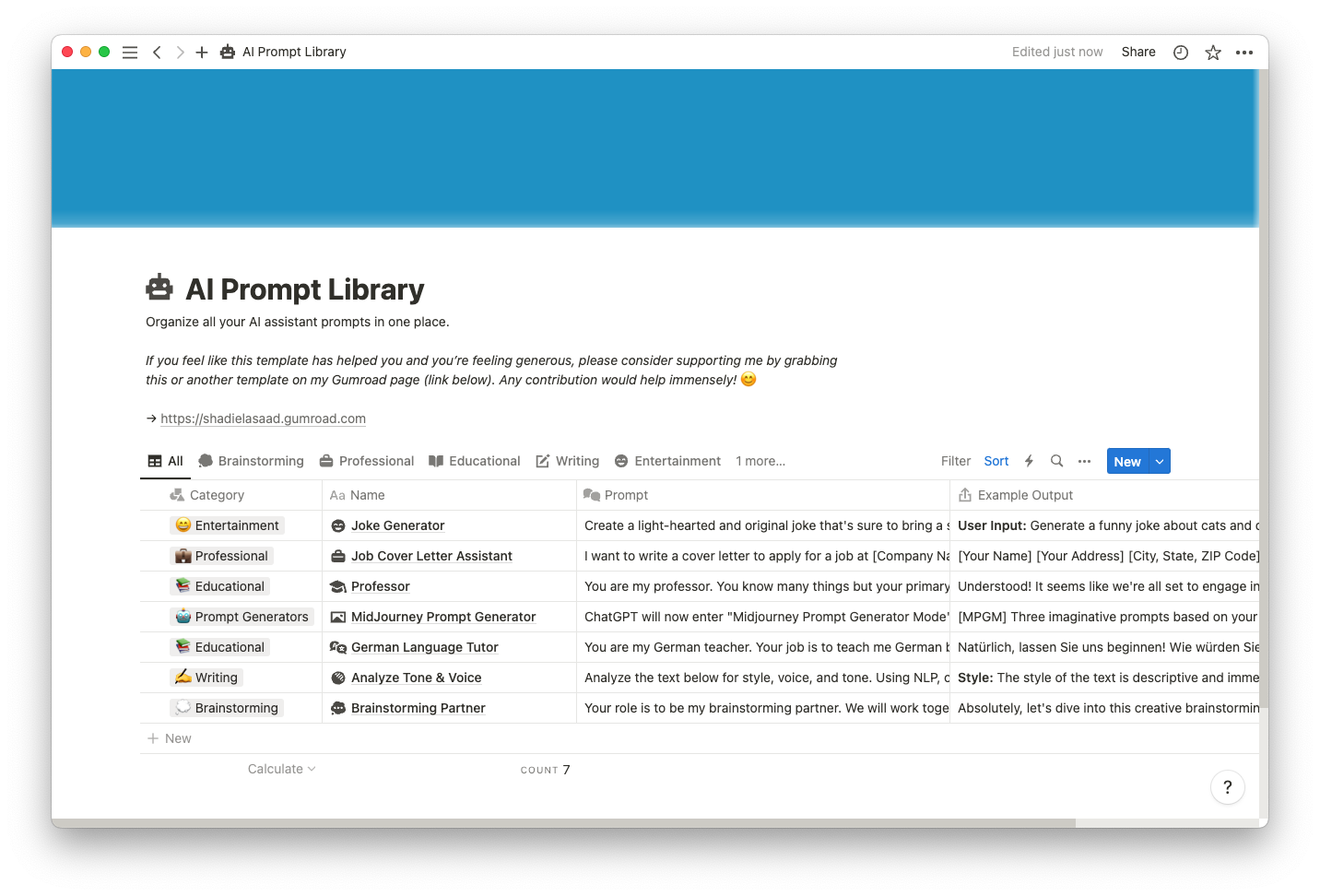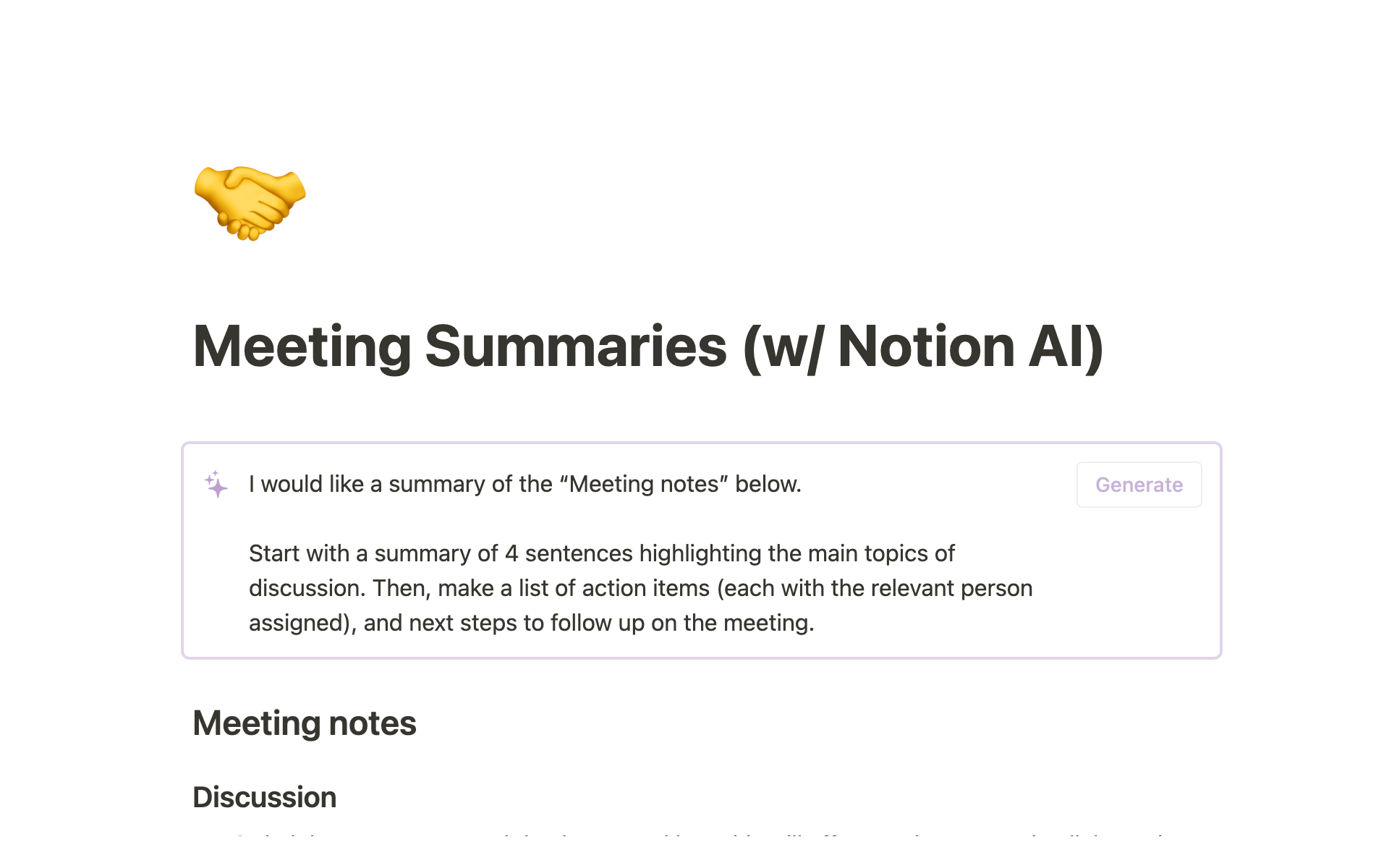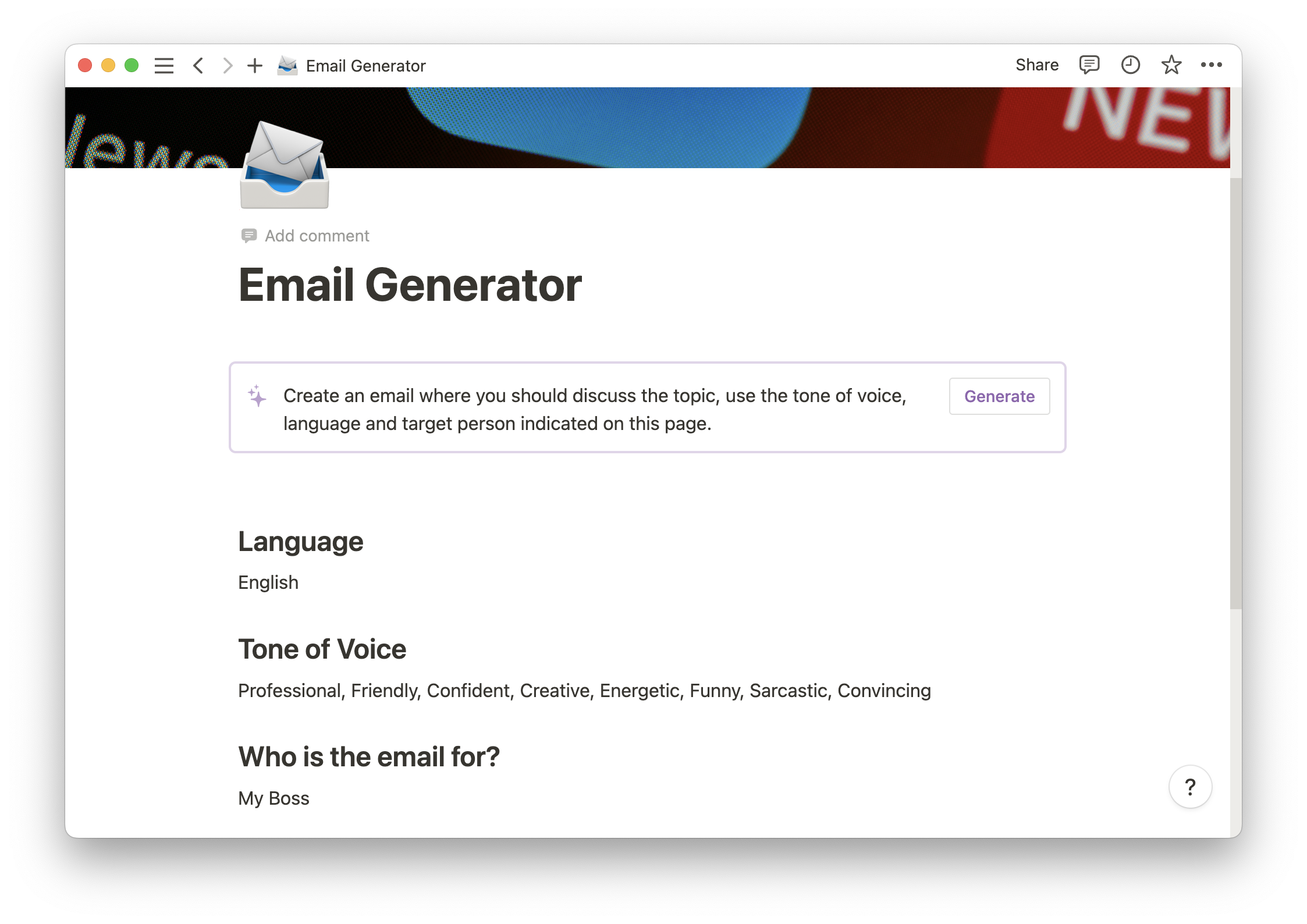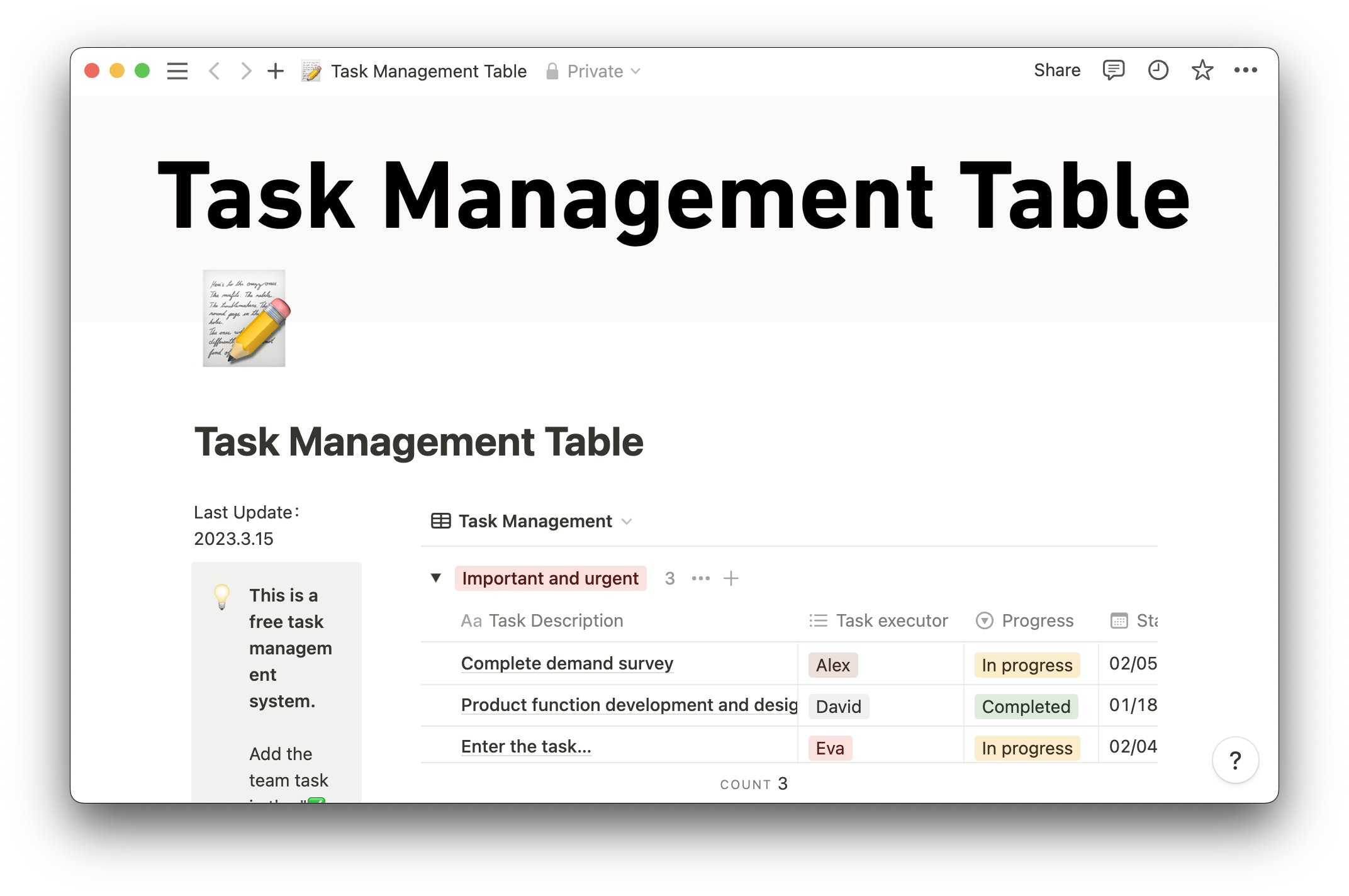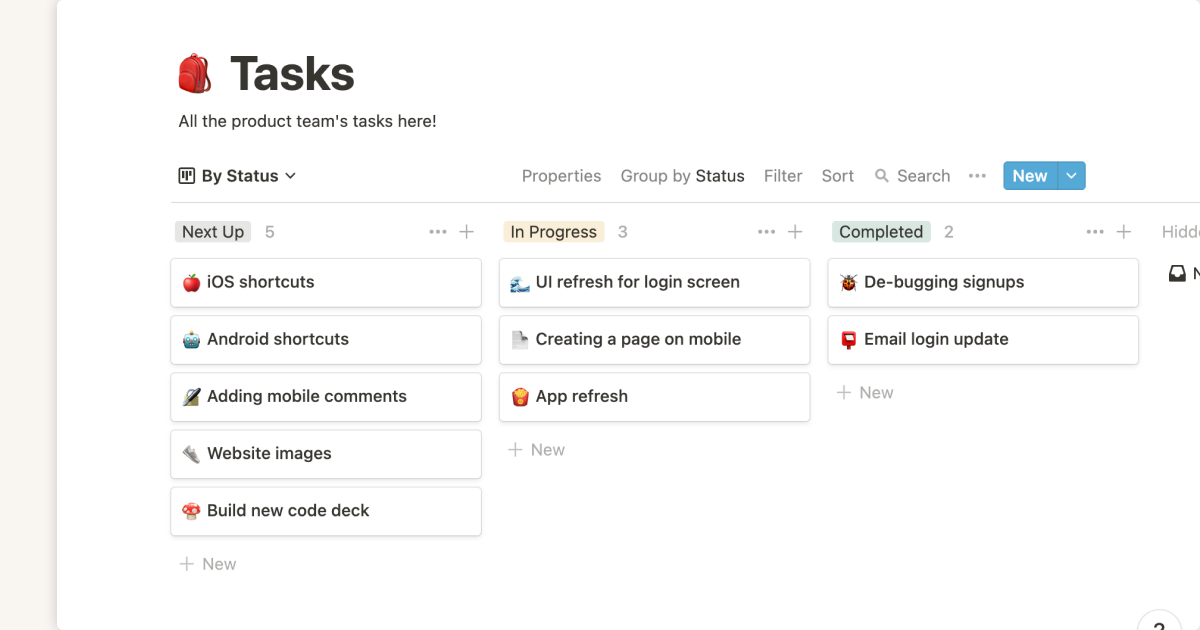Managing your own to-do list is challenging enough — and the complexity only escalates when you factor in your teammates' activities, calendars, and workflows. So the prospect of coordinating a cross-functional project can seem daunting; it can feel nearly impossible to find a common window in everyone's schedules to catch up on progress or brainstorm ideas.
Instead of grappling with the intricacies of everyone’s busy lives (including your own), why not enlist the help of technology? An artificial intelligence (AI) task manager can take on the work of scheduling your next team gathering, planning key project tasks, and even drafting emails, leaving you with the freedom and focus to tackle your other responsibilities.
What are AI task management tools?
AI task management software is an algorithm-driven planning tool that empowers individuals and cross-functional teams to better manage deliverables, track deadlines, and balance calendars. These tools go beyond traditional task management by leveraging AI algorithms to automate and streamline various aspects of organization, delegation, and scheduling for the user.
Some AI task management tools are so powerful they can track user behavior and synthesize the data they glean to make human-like decisions when planning and scheduling. Their purpose is to handle routine project management tasks efficiently and effectively, leaving workers more time to focus on the unique value they can add to the initiative.
How do AI task management tools work?
AI task managers understand your working habits and plan tasks on your behalf — often more efficiently than you could. They can perform a range of functions, including:
Smart scheduling — AI project task management tools can analyze the availability of team members, calendars, and project timelines to suggest optimal meeting times and deadlines.
Priority setting — using machine learning (ML), AI tools can study and make inferences from past prioritization data to evaluate task importance, urgency, and dependencies and ensure that teams focus first on high-impact activities.
Progress tracking — AI platforms can track project progress, send updates to relevant team members and stakeholders, and remind you of upcoming due dates and overdue tasks.
Writing — the tools can suggest everything from document outlines to better ways to frame a sentence, as well as synthesize voice transcripts and meeting notes. They can even derive suggestions from these syntheses, like which tasks your team should complete next in order to stay on track.
Task assignment — AI tools can recommend the best-suited team members for specific tasks based on their skills and workloads.
Smart calendars versus AI planners: What’s the difference?
While a smart calendar is a useful tool for managing commitments, it lacks the advanced capabilities of AI-driven planners.
Smart calendars operate based on predetermined rules and provide suggestions derived from the data you enter. For instance, if your team conducts a stand-up meeting each morning, after you input this occurrence multiple times, the smart calendar might propose automatically scheduling this meeting for the same time every weekday. Should you accept the recommendation, the platform will add this recurring event to your team's schedules.
AI planners, on the other hand, go beyond rule-based systems. They can tackle data analysis and dynamic learning from patterns they observe across your schedule, note-taking behaviors, task advancement, and more. Through this adaptable learning process, AI planners provide insights that cater to your unique habits and requirements, enhancing your scheduling and productivity experience in a way that smart calendars simply aren’t capable of.
The pros and cons of AI task management tools
Even the best task managers can’t do it all. While these tools offer numerous advantages, understanding their shortcomings is an important part of using them effectively. Here’s everything you need to know about their advantages and drawbacks:
Pros
When implemented correctly, AI project management can:
Save you time — the tools can automate repetitive tasks, reducing your manual workload and freeing up time for more strategic and creative work.
Help you forecast — by analyzing historical data and patterns, AI tools can offer accurate predictions on project completion dates, resource allocation, and potential roadblocks.
Connect with your other apps — most AI planning software can link up with other organizational applications you already use, so there’s no need to migrate data into a new platform to take advantage of the tools.
Cons
Understanding what AI can’t do empowers you to incorporate these valuable assets into your productivity toolkit without compromising the quality and integrity of your work processes. Keep in mind that AI project management tools:
Have a learning curve — your team is accustomed to the calendars and planning systems they already use, and may take awhile to adapt to new software.
Can’t replace humans — your AI assistant might write an excellent email draft, but you should give it a once over before sending it to a client. The same goes for other tasks the tool automates: Review and fine-tune all automated outputs to make sure they align with your standards.
Require good data — the accuracy and comprehensiveness of your data input dictate the effectiveness of an AI manager. If the tool pulls on incorrect or incomplete data, it might make faulty decisions. For instance, if you don’t have your team members’ time zones listed in your calendar app, AI may schedule meetings when not everyone is available.
What to look for in an AI task management tool
If you take a helping hand from AI, it’s important to do your research and choose the tool that best supports your unique needs. Here are some tips for selecting the right platform for you:
Consider cost
Most AI tools aren’t free, so it’s essential to consider whether the cost is worthwhile.
If you’re a freelancer or own a small business, you may not have enough team members to warrant an AI task management tool (unless your work focuses heavily on project management). Small teams can often do well with free products that include with some built-in AI features, such as popular no-cost email providers or Google Drive. Mid- to large-sized teams must ensure that investing in an AI task manager will drive a return on investment and improve efficiency without financial setbacks.
Prioritize ease of use
AI tools should simplify your workflow, not complicate it. The interface you choose should be simple, and everyone at your company — not just the developers — must be able to get a handle on it quickly. Keep in mind that not all organizations need this type of software, so the learning curve should imply wasted time and resources.
Find the right features
Ensure that your chosen AI tool works well with the applications you use already, including external calendars, shared drives, and messaging platforms. Consider, too, whether the AI manager supports the work you do. If you’re a marketer, you may want help brainstorming, drafting, and grammar-checking emails, but you don’t need a tool that integrates with development-focused project management software.
Notion AI makes task management a breeze
Notion harnesses the power of AI to make project management simpler. Our AI assistant can brainstorm an email draft, offer suggestions to make you a more imaginative writer, and synthesize your all-hands meeting notes — all in one place.
And did you know Notion’s AI-fueled templates can also level up your projects? Use our AI-powered product localization tool, content planning template, and prompt library to boost your creativity and productivity.

